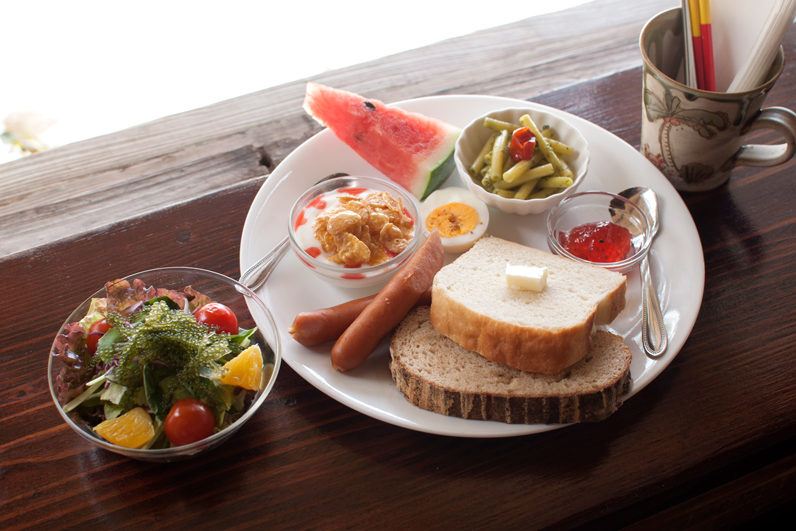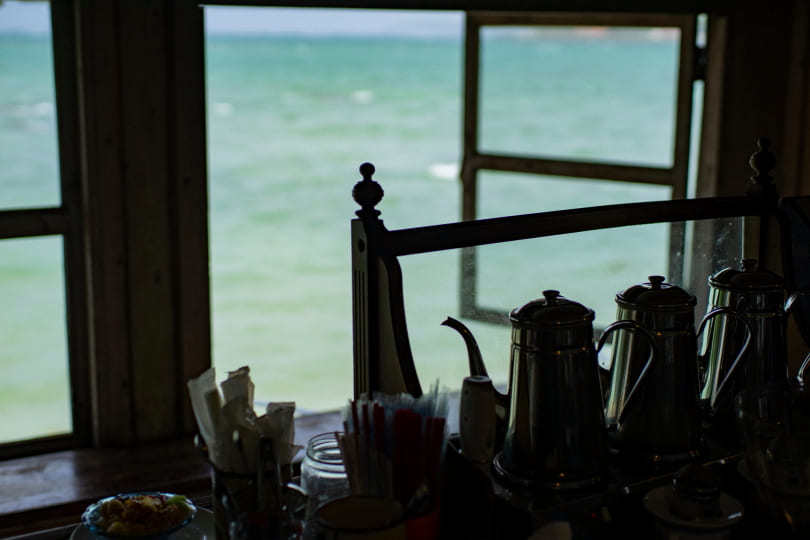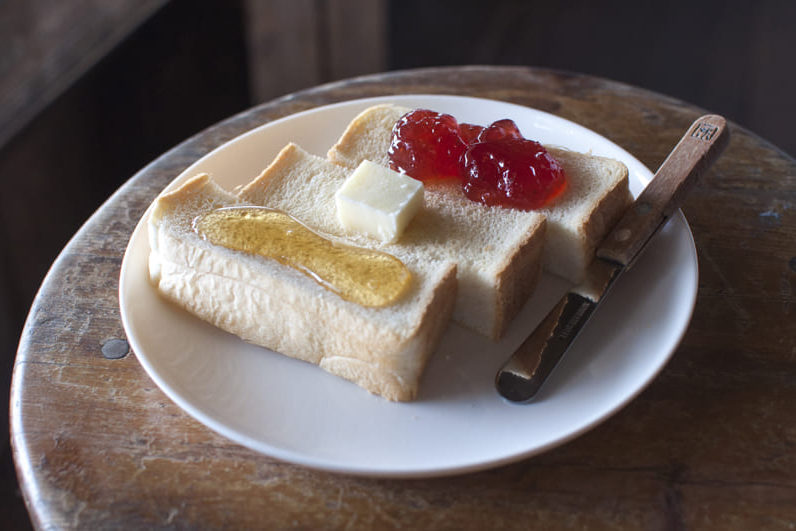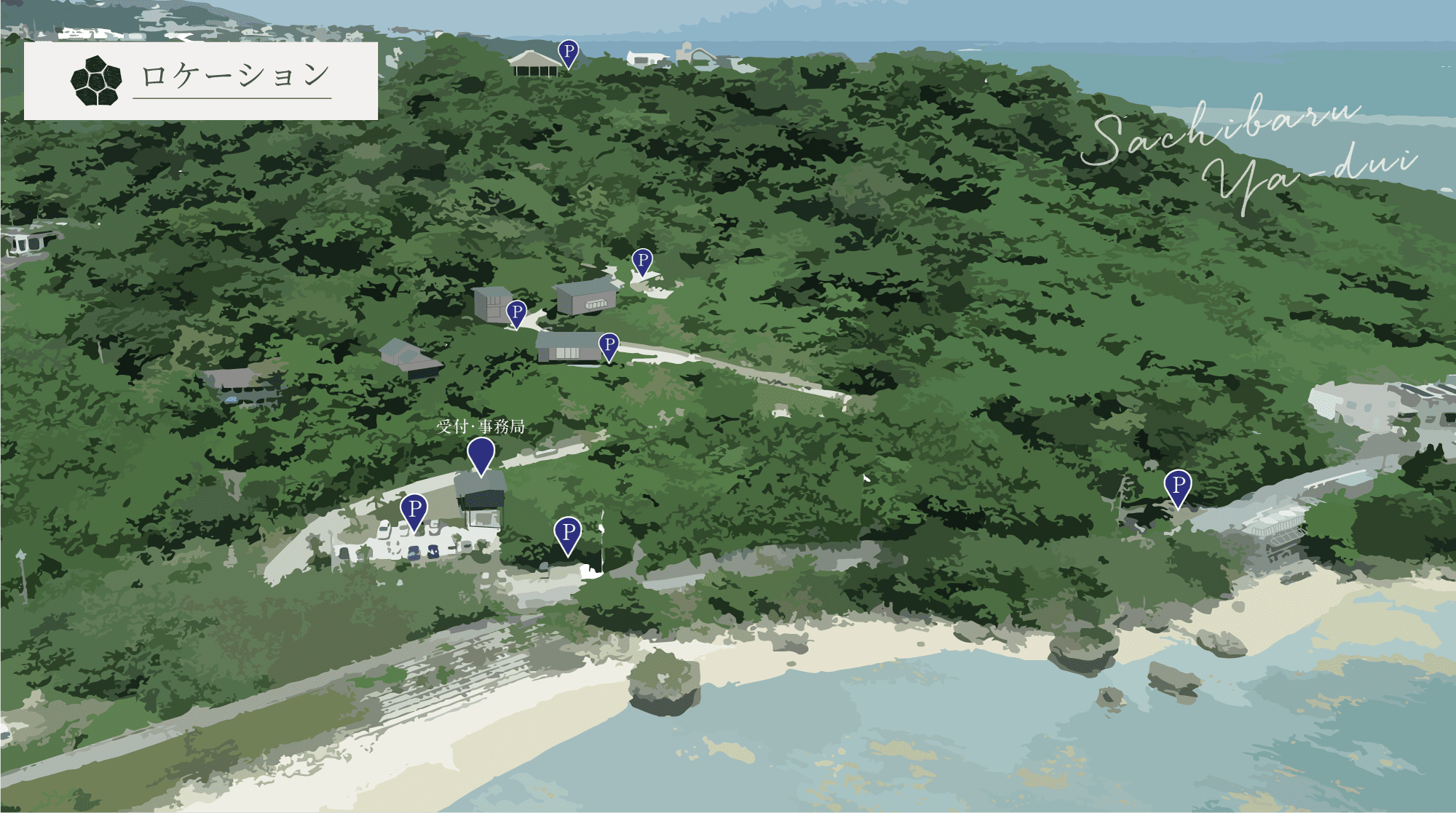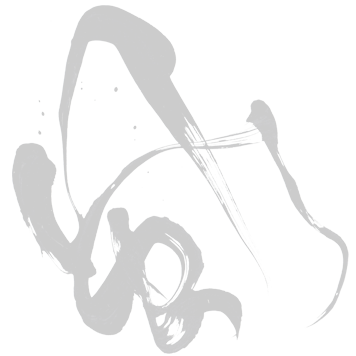
Hamabe no Chaya
Information
-
2024.3.11お車でお越しのお客様へ、駐車場に関するお願い。
-
2022.9.14浜辺の茶屋 モーニング営業
-
2021.1.08★Another Sky II” actress Shinobu Terajima loves Okinawa was broadcast.
Another Sky II” actress Shinobu Terajima loves Okinawa was broadcast.
“There are as many skies as there are dreams”
Visit with your son to a life-changing hideaway in the wilderness (Sachibaru Garden in Nanjo City).
Meet the owner who created the one and only world.
Access
2-1 Tamagusuku, Tamagusuku, Nanjo, Okinawa 901-0604[MAP]
*From Naha Airport about 40 minutes.
Hours of Operation
(Normal time)
Monday-Thursday 10:00-18:00 (LO 17:00)
*Morning hours, reservation only, 8:00-10:00
Inquiries dedicated to morning ℡070-2322-8023
If there is no reservation by 18:00 the day before, we will open at 10:00 as usual.
Fri-Sun/Holidays 8:00-18:00 (LO 17:00)
We will guide you in the order of your visit.
*Business hours may change due to the spread of new coronavirus infection.
For the latest information, please visit our official website, official SNS (Facebook/Instagram),
We will keep you posted in writing at the store.
Business calendar
Contact Us
TEL 098-948-2073
Mail
* We do not accept reservations



Sachibaru Ya-dui
In a place rich in nature in Tamagusuku, the open land of Ryukyu (Okinawa)
A healing space with "Hamabe no Chaya, Yamano Chaya Rakusui, Sachibaru Garden, Relaxation Salon, Accommodations scattered in the garden"
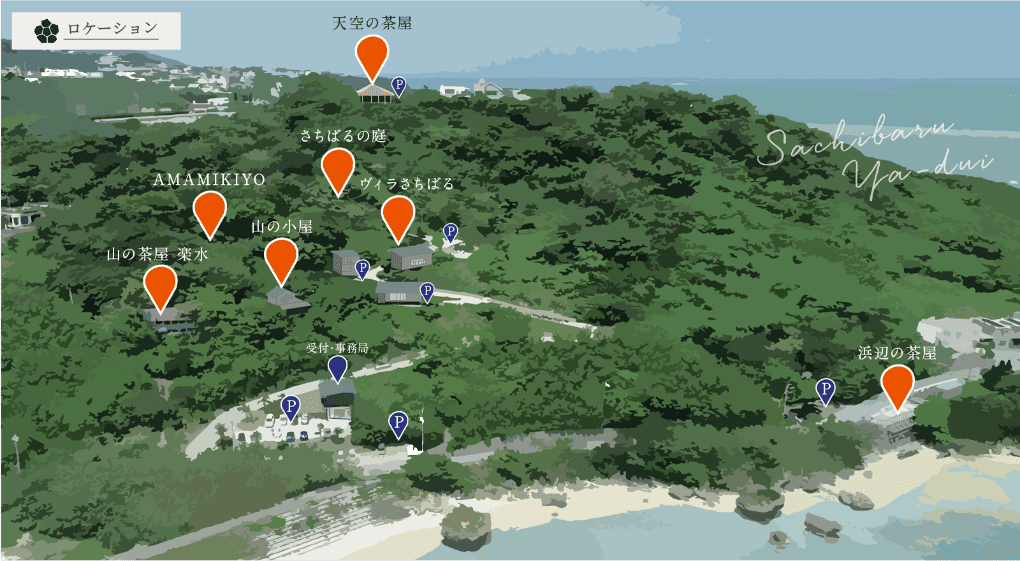
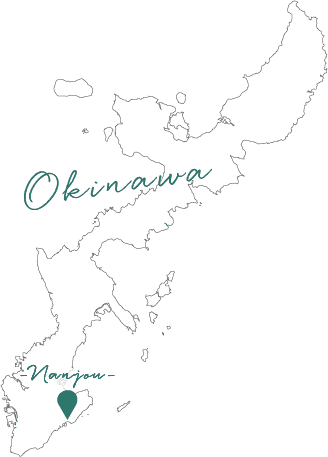


The shop’s owner did not talk to me. I did not feel ignored, but rather treasured. When our eyes met, the owner quickly greeted me with a smile. Coffee was placed quietly next to me to not bother me while I read my book. That casual hospitality is what made me happy. I even began a small coffee shop of my own. During that time, my husband and I started to plan an idea called ‘Concept of Tamagusuku’s Leisure Village’. The village is a place to have a café, horse riding facility, lodging and an event space for concerts and markets. That concept was the first step to Hamabe no Chaya.”




Whoosh, whoosh, whoosh. The cleaning of the beach continues without missing a morning. On the stairs, their cat mascot, Mii-chan, grooms and waits for its owner. The owner puts collected seaweed into the fields. The ocean blessed minerals carried by the wind give liveliness to the land. The sandy beach Waves quietly come and go on the sandy beach I can almost reach out and touch. Clean wind crosses over the large ocean. A little, hand crafted café standing on a stone basis that was piled one by one. A deeply familiar place I want to stop by every time I come to Okinawa.


Splish-splash, bubble, fizz…When the sky is dyed golden, the waves quietly come and withdraw. The roar of the sea drowns the sound of strengthening wind that sometimes adds faint coloration to the inside of the quiet store. There are young people at the counter overlooking the ocean and alternate staring at their phones and the ocean.
The value of spending time in a place with nothing at that time was not as common as it is now. “People will not come to a place like this even if you build a café.” This is what Nobuyoshi and Yoneko Inafuku were often told by many people. The reason the two did not give up was the confidence given by the power of the land that moved the hearts, not only of local people, but also of the tourists from across the ocean.
Sachibaru Ya-dui
In a place rich in nature in Tamagusuku, the open land of Ryukyu (Okinawa)
A healing space with "Hamabe no Chaya, Yamano Chaya Rakusui, Sachibaru Garden, Relaxation Salon, Accommodations scattered in the garden"

In February of the lunar calendar, during the period when the season changes from winter to spring, a spring storm winds up. The winds that turn like a windmill from north to south are called ‘ningachikajimai’ [neen-gah-chee-kah-gee-my] in Okinawa. The seasons go around and for a while after rainy season ends, a refreshing southern wind continues to blow. This wind is called ‘kachibe’ [kah-chee-bay]. It is the southern wind of summer solstice. There is a cliché in Okinawan language called ‘fe nu kajigwa fuchi, ki shicha uti, i anbe’. ‘fue nu kaji’ [feh-noo-kah-gee] is southern wind. ‘Around until September during the hot season, when the southern wind blows, relaxing under tree shade feels good.’
‘Mafukkwa fuka uti waja naran. Ki nu shicha uti, ninju jemashi.’ These words are whispered the hottest days during summer. The intense heat from July to September is ‘mafukkwa’ [mah-foo-kwah] and the phrase is ‘It is better to take a few hours off during lunchtime, because work cannot be done on such a hot day.’ However, that is not because Okinawans are lazy. Actually, before electricity became widespread, if they rested plenty during the afternoon, they worked until full darkness falls after sunset. Wisdoms for everyday life are born from a life close to nature. Remnants of that period has been handed down to this place even after the era has passed.


